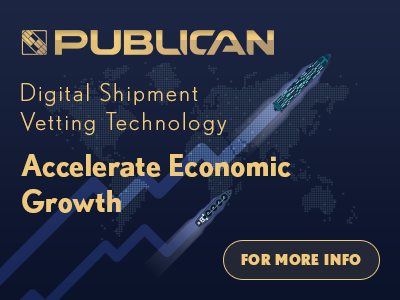Mexico Customs is granted greater autonomy
21 June 2022
By the National Customs Agency of MexicoOn 1 January 2022, the National Customs Agency of Mexico (ANAM) officially came into existence, becoming an independent body under the Ministry of Finance. Customs-related functions were previously handled by the General Administration for Customs which was one of the units of the Tax Administration Service (SAT).
In keeping with the Mexican Government’s desire to strengthen public institutions, the new Agency has been given technical, operational, administrative, budget and management autonomy and will therefore have greater control over modernization projects.
The Agency also has new administrative and legal powers to combat threats to national security. Led by the former General Customs Administrator, Mr. Horacio Duarte Olivares, it is responsible for traditional Customs functions as well as for coordinating activities with the armed forces and other national security services to protect the country´s maritime ports.
The Inter-American Development Bank (IDB) noted that such autonomy will additionally enable Customs to acquire the financial resources needed to better manage trade flows in the current environment. Furthermore, this autonomy offers an opportunity to rethink Customs management and eliminates external influences on decision-making, particularly by allocating resources to achieve the institution’s goals.
At the end of 2021, the accumulated revenue collected by Customs reached a historic amount equivalent to 48,939 million US dollars. This was, in part, due to the launch of a comprehensive anti-corruption initiative and to a focus on tax evasion, drug and arms trafficking, and fuel smuggling.
With the opening of its fiftieth Customs office, at the new Felipe Angeles International Airport (AIFA) north of Mexico City, ANAM aims to increase the number of Customs controls alongside its revenue collection capacity.
The new Agency is also expected to enhance its results by simplifying formalities, making use of innovations, implementing a comprehensive anti-corruption strategy, investing in its infrastructure, and creating new programmes and mechanisms to develop the skills and knowledge

